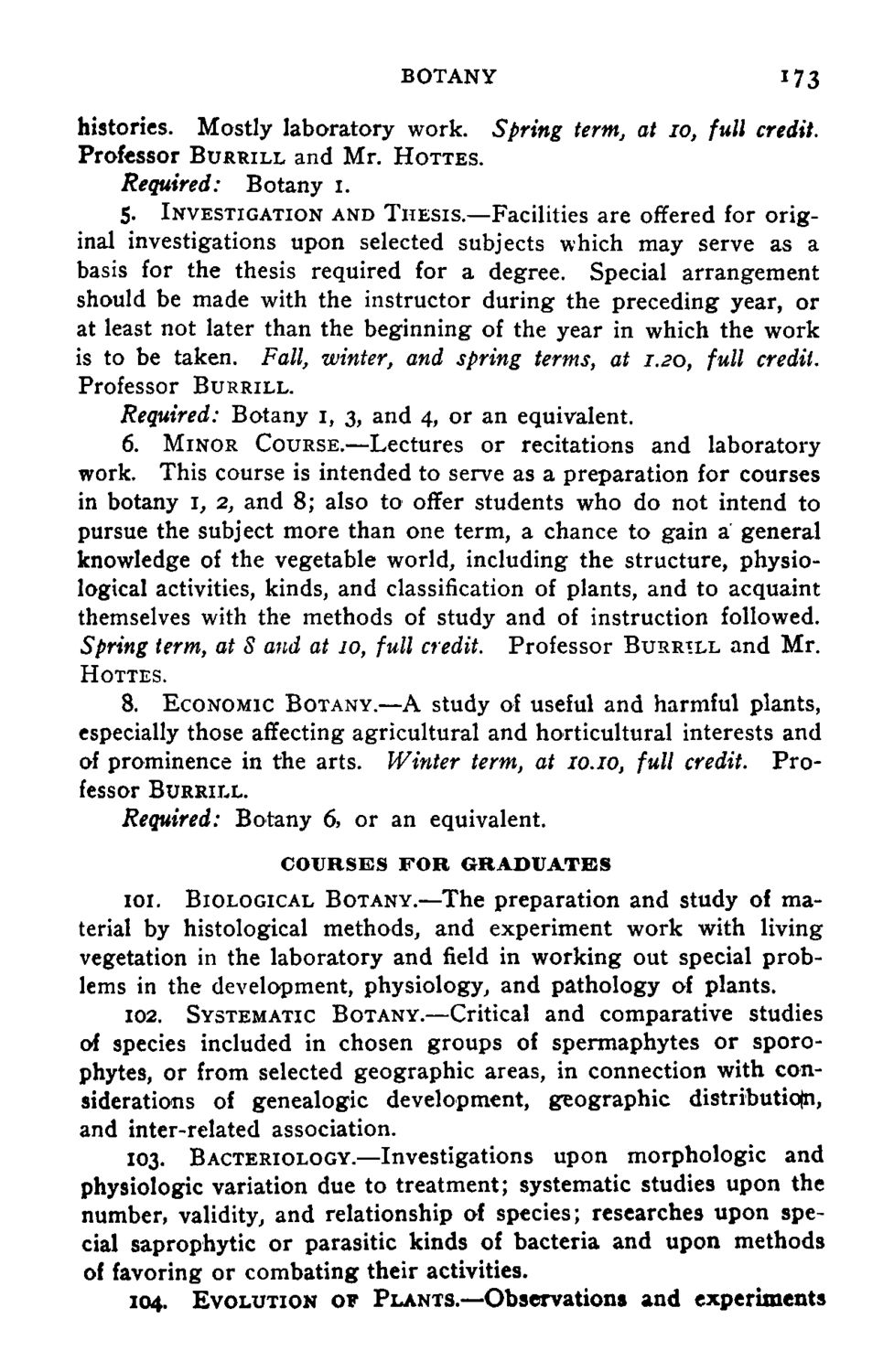| |
| |
Caption: Course Catalog - 1897-1898
This is a reduced-resolution page image for fast online browsing.

EXTRACTED TEXT FROM PAGE:
BOTANY histories. Mostly laboratory work. 173 Spring term, at 10, full credit. Professor BURRILL and Mr. HOTTES. Required: Botany 1. 5. INVESTIGATION AND THESIS.—Facilities are offered for original investigations upon selected subjects which may serve as a basis for the thesis required for a degree. Special arrangement should be made with the instructor during the preceding year, or at least not later than the beginning of the year in which the work is to be taken. Fall, winter, and spring terms, at 1.20, full credit. Professor BURRILL. Required: Botany i, 3, and 4, or an equivalent. 6. MINOR COURSE.—Lectures or recitations and laboratory work. This course is intended to serve as a preparation for courses in botany 1, 2, and 8; also to offer students who do not intend to pursue the subject more than one term, a chance to gain a general knowledge of the vegetable world, including the structure, physiological activities, kinds, and classification of plants, and to acquaint themselves with the methods of study and of instruction followed. Spring term, at S and at 10, full credit. Professor BURRILL and Mr. HOTTES. 8. ECONOMIC BOTANY.—A study of useful and harmful plants, especially those affecting agricultural and horticultural interests and of prominence in the arts. Winter term, at 10.10, full credit. Professor BURRILL. Required: Botany 6, or an equivalent. COURSES FOR GRADUATES 101. BIOLOGICAL BOTANY.—The preparation and study of material by histological methods, and experiment work with living vegetation in the laboratory and field in working out special problems in the development, physiology, and pathology of plants. 102. SYSTEMATIC BOTANY.—Critical and comparative studies of species included in chosen groups of spermaphytes or sporophytes, or from selected geographic areas, in connection with considerations of genealogic development, geographic distribution, and inter-related association. 103. BACTERIOLOGY.—Investigations upon morphologic and physiologic variation due to treatment; systematic studies upon the number, validity, and relationship of species; researches upon special saprophytic or parasitic kinds of bacteria and upon methods of favoring or combating their activities. 104. EVOLUTION OF PLANTS.—Observations and experiments
| |